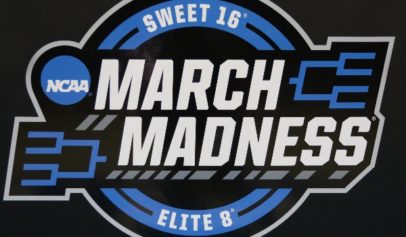The NCAA passed a package of sweeping changes Tuesday intended to crack down hard on rule-breaking schools and coaches.
Under the new legislation, approved by the 13-member board of directors, programs that commit the most egregious infractions could face postseason bans of two to four years and fines stretching into the millions, while coaches could face suspensions of up to one year for violations committed by their staffs. The board also approved measures to expand the penalty structure from two tiers to four, create new penalty guidelines and speed up the litigation process.
The vote ends a movement that started in August 2011 during the midst of one of the most scandalous years in college sports history. NCAA President Mark Emmert was so concerned that he asked dozens of university leaders to join him at a presidential retreat in Indianapolis.
It was then that Emmert, along with school presidents and chancellors, said they were going to get tough on those who refused to play by the rules.
Now they have.
“We have sought all along to remove the `risk-reward’ analysis that has tempted people — often because of the financial pressures to win at all costs — to break the rules in the hopes that either they won’t be caught or that the consequences won’t be very harsh if they do get caught,” Emmert said. “The new system the board adopted today is the result of a lot of hard work and membership input devoted to protecting the collegiate model.”
Under the plan, violators found in a “serious breach of conduct” with aggravating circumstances could get those postseason bans and be forced to return millions of dollars from specific events or gross revenue generated by the sport during those years in which rules were broken.
That’s exactly what happened to Penn State in the wake of the Jerry Sandusky scandal. The NCAA banned the Nittany Lions’ football program from postseason play until after the 2016 season and levied a $60 million fine on the school.
If a member of the coaching staff commits an egregious infraction, the head coach must prove he or she was unaware it occurred or face a suspension that ranges from 10 percent of the season to one full season.
“We expect head coaches to provide practices and training and written materials that instruct their assistant coaches how to act,” said NCAA executive committee chairman Ed Ray, the Oregon State president. “If they’ve done that it can become mitigating evidence that they shouldn’t be held accountable for what the assistant coach did. But head coaches have to have these things in place or the presumption will be that he or she didn’t care enough to set standards. In that case, if the assistant goes rogue, then it’s partly the head coach’s fault and they need to be held accountable.”
Another piece of the plan allows the NCAA to scrap its current system of major and secondary infractions for a four-level stepladder — severe breach of conduct, significant breach of conduct, breach of conduct and incidental issues. The board is hoping this allows the enforcement staff to focus primarily on the most serious cases.


